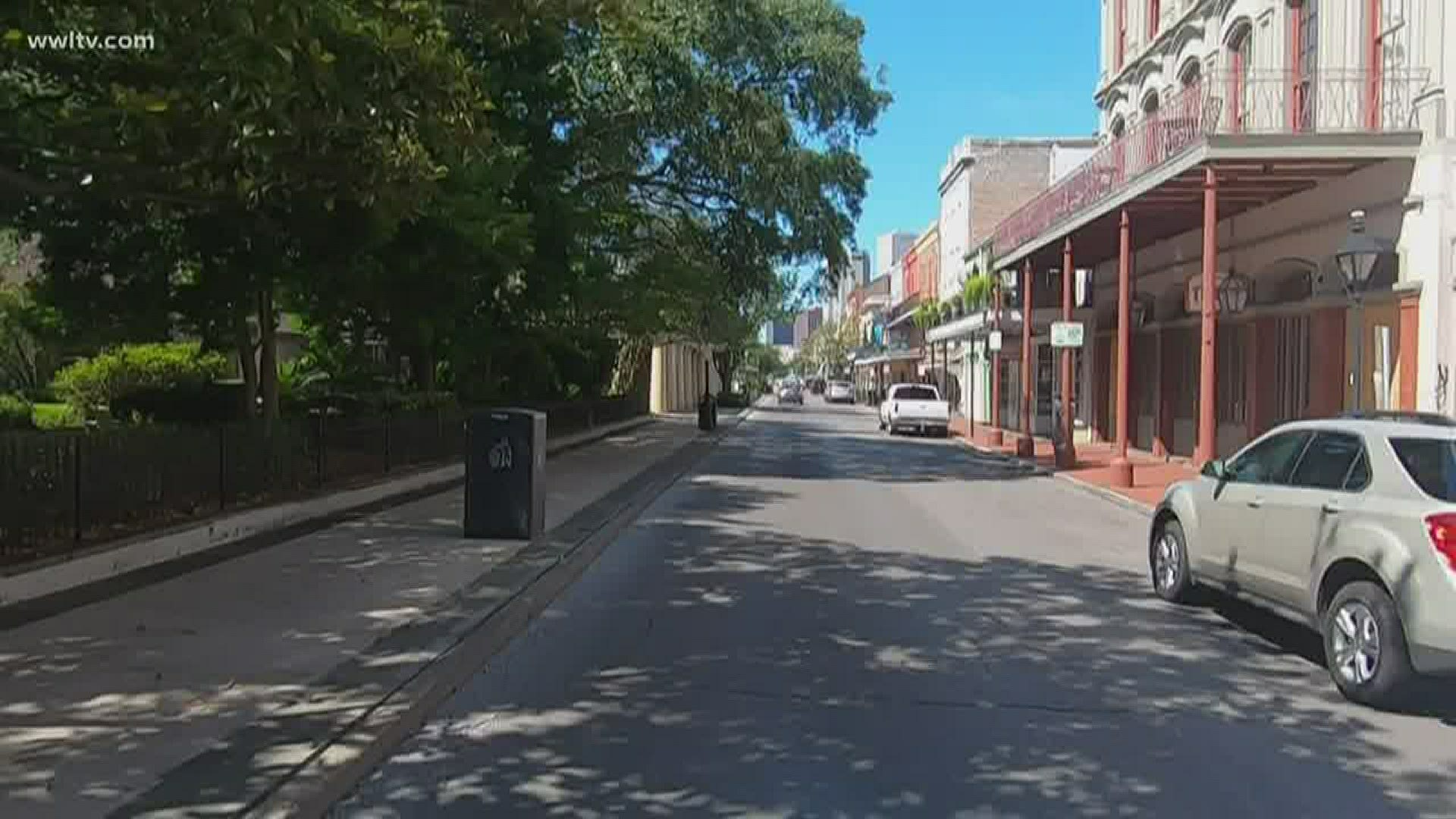NEW ORLEANS — Ten weeks into the stay at home order and the empty scene in the French Quarter is still surreal. Many businesses have put plywood on windows and doors. The streets are eerily quiet.
“Everyone is boarded up, it’s unbelievable,” said Frank Gagliano.
Gagliano’s family has run Frank’s Restaurant on Decatur street for 55 years.
When the Coronavirus forced widespread shutdowns, he shifted to take out service for two week, but he says it wasn’t worth it. Now he’s anxious for the city to reopen.
“It’s rough right now. She literally shut the city down the mayor did. I mean we’re on stand-by waiting to see what’s going to happen,” Gagliano said.
New Orleans is set to start phase one of its reopening on Saturday, May 16.
To get there, the city says five milestones had to be reached. Among them: a sustained decline in new COVID-19 cases, efficiency in testing capacity, and having contact tracing in place. Mayor Latoya Cantrell says the stay at home orders have worked, but the casualties have been sobering.
“470 deaths, you just can’t make it up, it’s a real number, they’re real people,” Cantrell said.
On Monday, Cantrell and Dr. Jennifer Avegno, the city’s public health director, walked through a presentation detailing the five milestones. It covered the city’s progress in “flattening the curve”. Dr. Avegno says to continue that progress, everyone must still take precautions during this reopening.
“Physical distancing will remain in effect for the foreseeable future, everyone must wear face covering when they go about their business,” Dr. Avegno said.
Dr. Avegno put an emphasis on the dangers of so called “super spreaders”.
Those are events and places that involve a gathering of a large number of people. In phase one at least, things like weddings, parties and football games may not be possible. Avegno says the economic pain that’s being felt now would be multiplied if precautions aren’t taken during phase one and another outbreak happens.
“Going back would be even more painful than shutting down initially,” Dr. Avegno said.
The public’s health is critical, but for Gagliano, he’s also worried about the public’s confidence in getting back out to the places like his.
“New Orleans is known for big events, festivals. That’s what we draw from. If there are no tourists coming here, it’s going to be a rough road,” Gagliano said.
Medical experts say the safest place is still your home. A message that may be hard for businesses to digest.
► Get breaking news from your neighborhood delivered directly to you by downloading the new FREE WWL-TV News app now in the IOS App Store or Google Play.

